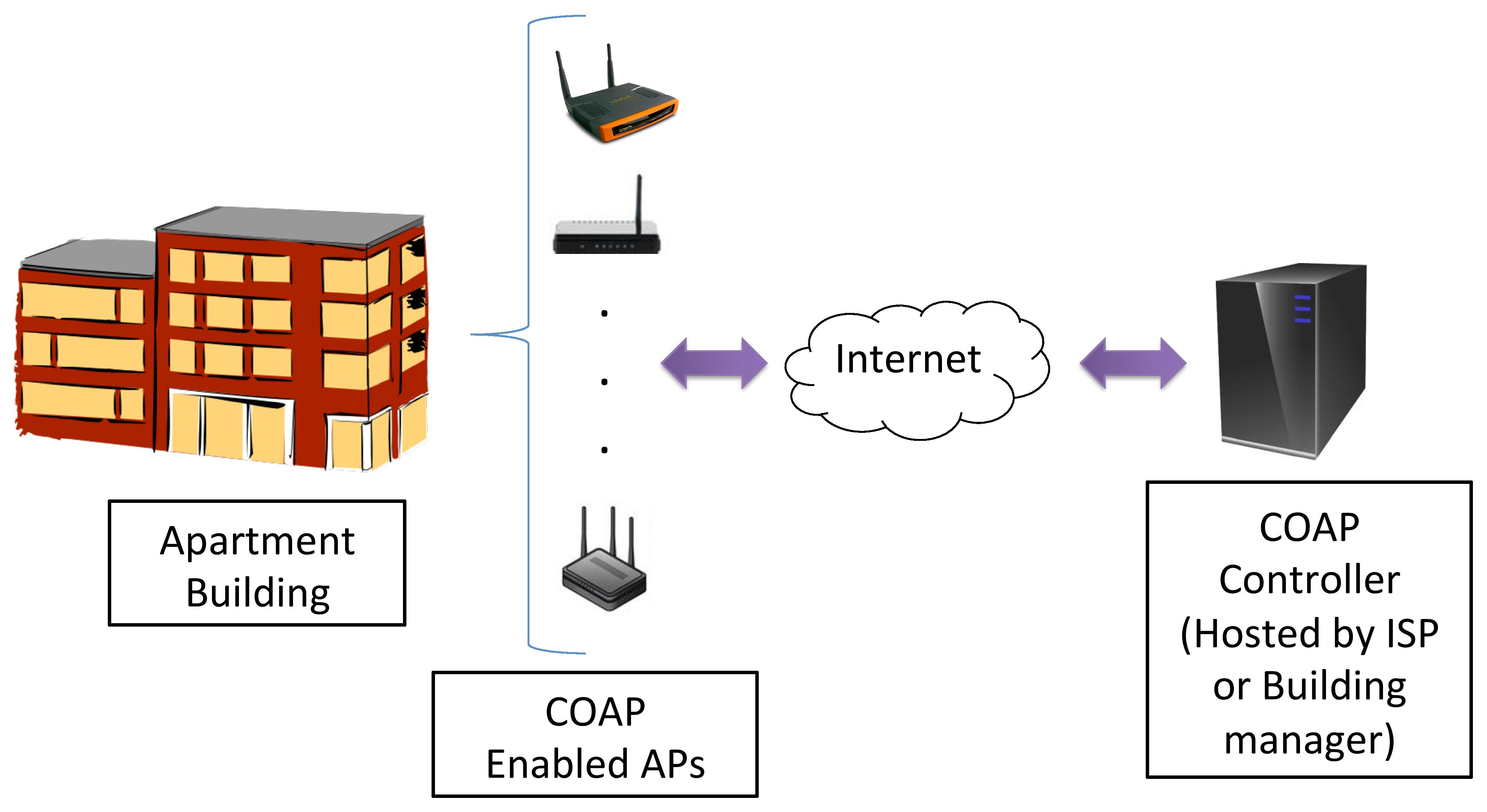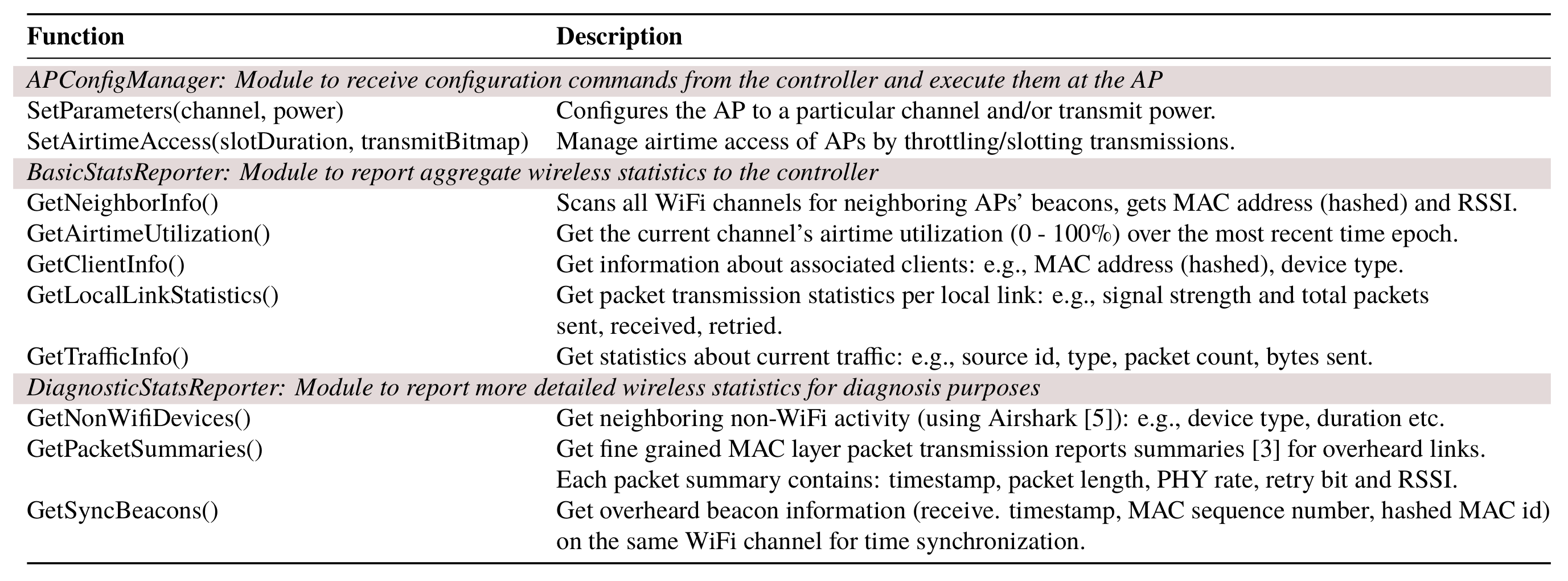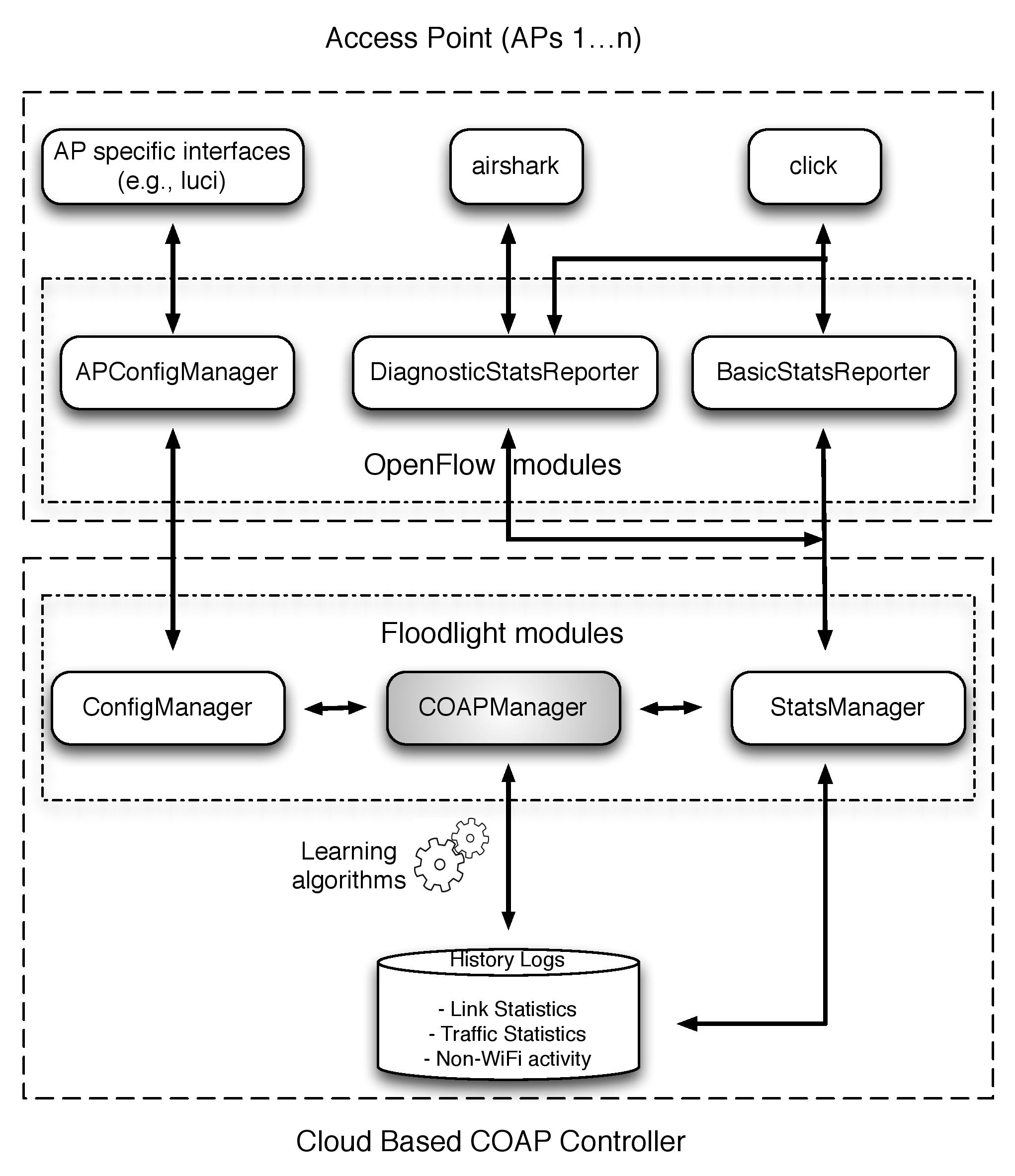|
Wireless gateways (e.g., Access Points, wireless Set-Top Boxes) act as the primary mode of internet access in most residential network deployments today. A diverse set of WiFi- capable devices access Internet-based services through these gateways, e.g., laptops, tablets and other handhelds, game controllers (XBox, Wii), media streaming devices (Apple TV, Google TV, Roku), and many more. Given its
central role in these home networks, the performance and experience of users at homes depend centrally on efficient and dynamic configuration of these gateways. In our proposed service, called COAP (Coordination framework for Open APs), participating wireless gateways (e.g., Access Points) are configured to securely connect to a cloud- based controller (Figure 2). The controller provides all necessary management services that can be operated by a third-party (potentially distinct from the individual ISPs). In general, it is desirable that all nearby APs use the same controller service for the management function. In the context of large apartment buildings, we envision that the apartment management contract with a single controller service and all residents are asked to utilize the designated controller service within the building. The architectural components of COAP are based on work done by this team as part of the MobilityFirst Future Internet Architecture project. For more information and collaboration opportunities, please contact: Prof. Suman Banerjee (suman@cs.wisc.edu). |

An example of COAP deployment within a residential apartment building consisting of COAP capable home APs and a cloud based COAP controller. |
COAP Framework ComponentsCOAP uses OpenFlow to enable SDN style management of residential APs. Following are the main components of the COAP framework.
COAP whitepaper and API OverviewMost functions are fairly simple to implement.Please refer to the white paper for detailed information about the COAP API and OpenFlow wireless extensions. The following OpenFlow client code files (v 1.0) contain COAP related modications: openflow.h datapath.c These files are only meant to provide information about Openflow protocol modifications required to support COAP. A screenshot of the different functions implemented by the COAP APs. 
|
 Access Point and controller components of the COAP framework. The "COAPManager" is the main module which manages other modules at the controller.
Access Point and controller components of the COAP framework. The "COAPManager" is the main module which manages other modules at the controller.
|
Publications
|
[pdf] [slides] |
Outsourcing Coordination and Management of Home Wireless Access Points through an Open API Ashish Patro, Suman Banerjee IEEE INFOCOM 2015 White paper describing the OpenFlow protocol extensions for COAP: SWhite paper Datasets from the MobiCom 2013 work analyzed for this paper: dataset |
|
[pdf] [slides] |
COAP: A Software-Defined Approach for Home WLAN Management through an Open API Ashish Patro, Suman Banerjee Workshop on Mobility in the Evolving Internet Architecture (MobiArch), ACM MobiCom 2014 Best presentation award Demo at Open Networking Summit 2014: pdf Proposal at Open Networking Summit 2013: pdf poster |
|
[pdf] [slides] [dataset] |
Observing Home Wireless Experience through WiFi APs Ashish Patro, Srinivas Govindan, Suman Banerjee ACM MobiCom 2013 |